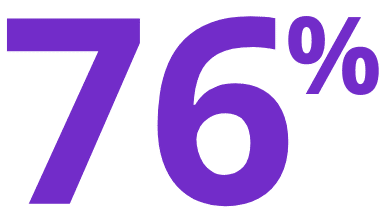
Big banks, small banks, neobanks and non-banks all agreed on one thing during the opening session of MoneyLIVE 2024. The profit boom generated by high interest rates is over as inflationary pressures begin to ease, leaving banks to now navigate a period of disinflation.
‘We’re probably at the top of the cycle now,’ noted Nick Fahy, Chief Executive Officer of Cynergy Bank.
This tipping point represents both pros and cons for banks according to Saif Malik, UK Chief Executive Officer and Head of Client Coverage for UK and Türkiye of Standard Chartered Bank: ‘High interest rates have been positive to some extent but they also brought a high cost of funding’.
Malik predicts a further softening in interest rates over the next six to 12 months, bringing some relief for hard-pressed consumers battling the cost-of-living crisis. There are hopes this boost in disposable income will continue to feed into what Klaus Baader, Global Chief Economist of Societe Generale, called ‘resilient but sluggish’ growth.


of banking CEOs are CONFIDENT in industry growth over the next 3 years¹


This is DOWN from 82% in 2022
Societe Generale’s Global Chief Economist pointed out that the Covid-19 pandemic gave the world the ‘greatest recession in living memory’ and that while countries have, to varying degrees, surpassed their level of GDP in Q4 2019, this was in fact a ‘very superficial’ success.
‘GDP relative to the potential growth rate does not look nearly as good,’ he said.
The future trajectory of disinflation may be harder to predict, particularly given the recent contraction experienced by some leading economies. He pointed out that the gap between headline and core inflation has been greatly reduced, in some cases even turning negative, that the outlook for energy prices remains uncertain in a world of heightened geopolitical tension, while wage pressures as a result of exceptionally low unemployment – there are 1.4 vacancies per unemployed person in the US, for example - may yet exert further upwards pressure.
The good news is that corporate balance sheets look very healthy, with profit margins not showing any signs of a looming recession. Indeed, the Societe Generale economist said his next briefing could potentially be titled ‘recession delayed indefinitely’.
Whatever lies ahead, it’s clear that technology and innovation will be critical to navigating the ebb and flow of disinflation. Innovation can help configure products and services that serve up advice and support at scale to customers still reeling from turmoil of recent years, said Francesca Carlesi, Chief Executive Officer, Revolut UK.
Indeed, the capacity for digital technologies to drive efficiencies, reduce costs and deliver on multiple agendas, be it support to vulnerable customers, sustainability or fighting fraud, means sustained investment in innovation is essential throughout the economic cycle.

FinTech plays a very big role in pushing the boundaries of the art of the possible. Things that were considered impossible 10 years ago are now mainstream.
FRANCESCA CARLESI
CHIEF EXECUTIVE OFFICER, REVOLUT UK

For the impossibilities set to materialise over the next 10 years, MONEYLIVE SUMMIT WAS THE PLACE TO BE!
Stay in the loop with MoneyLIVE
Subscribe to our newsletter to receive news, insights and special offers.
By submitting this form you agree to our Privacy & Cookies Policy and Terms & Conditions

